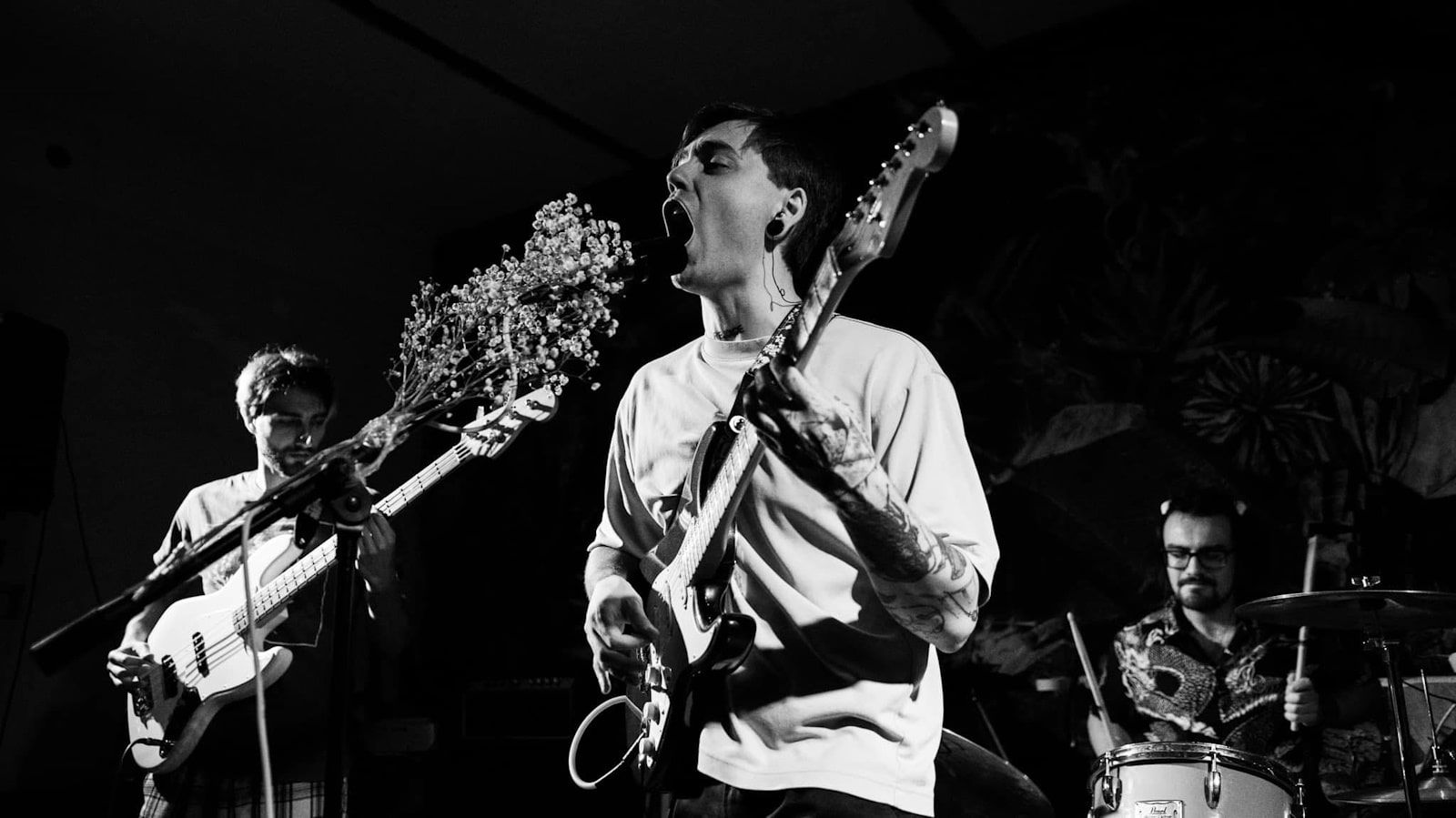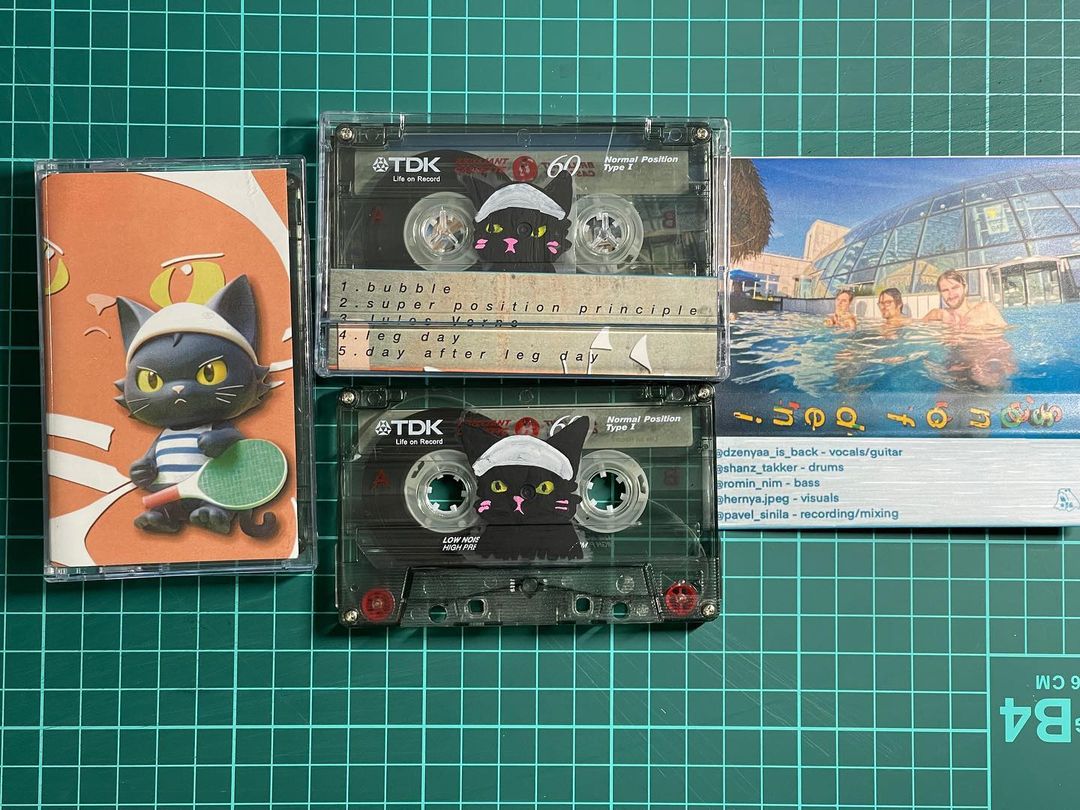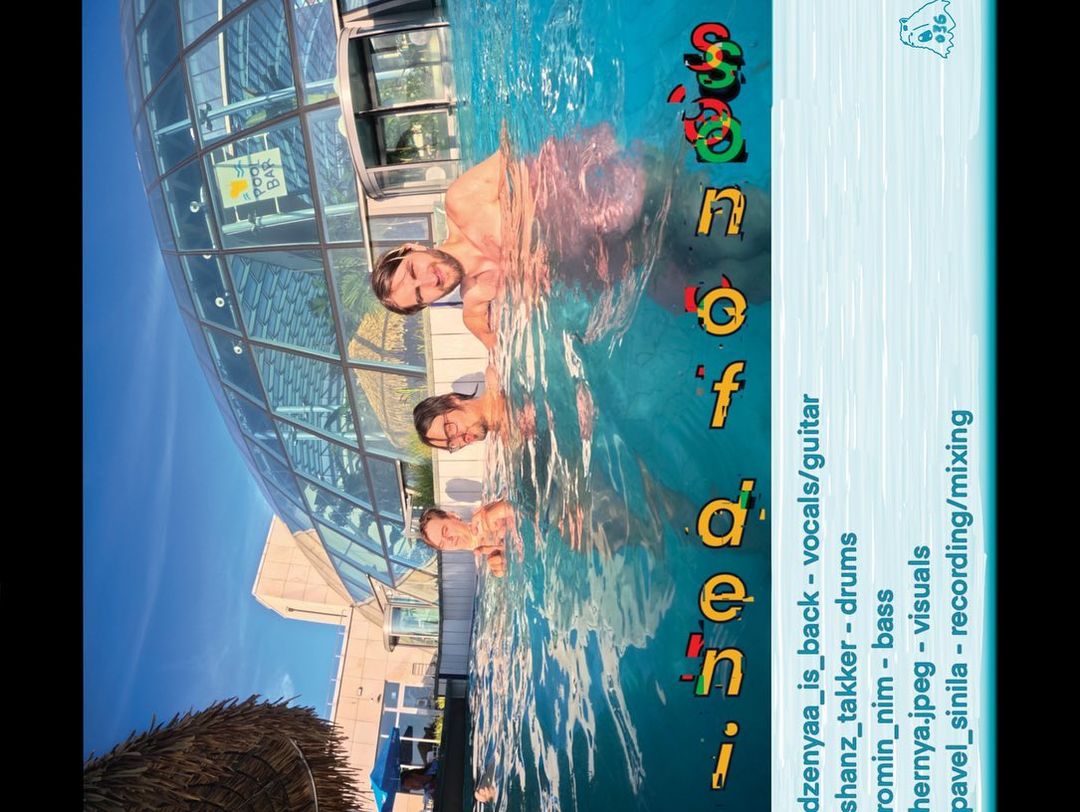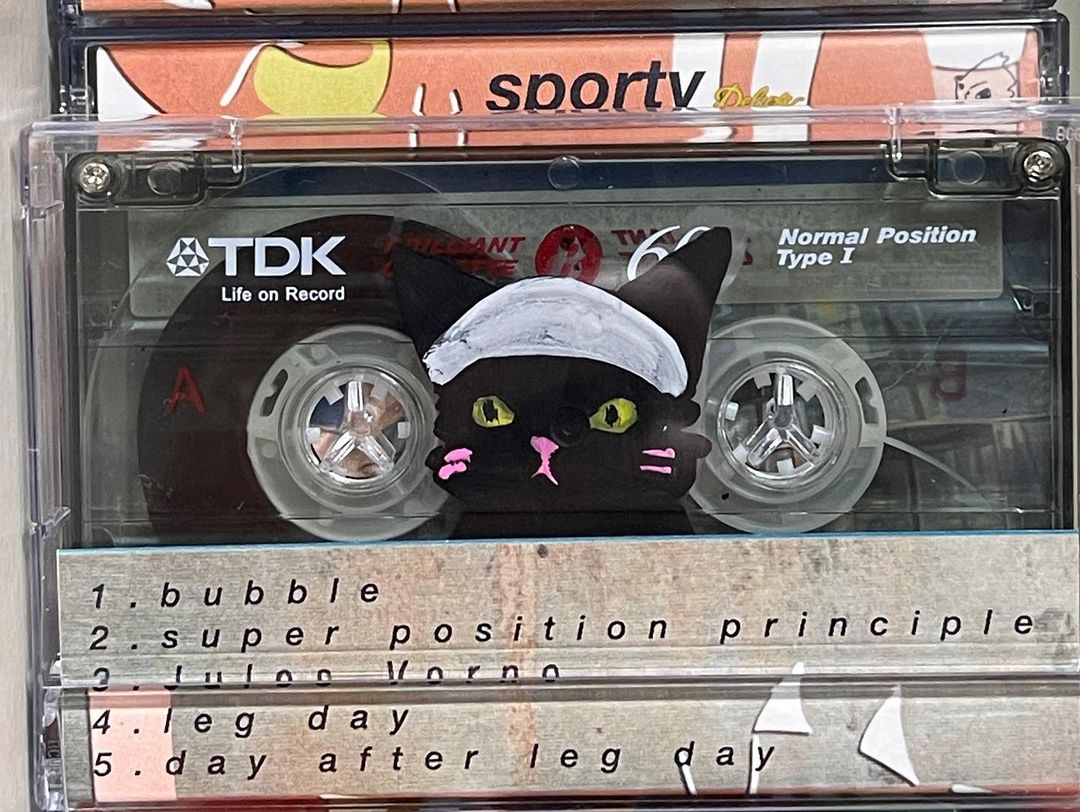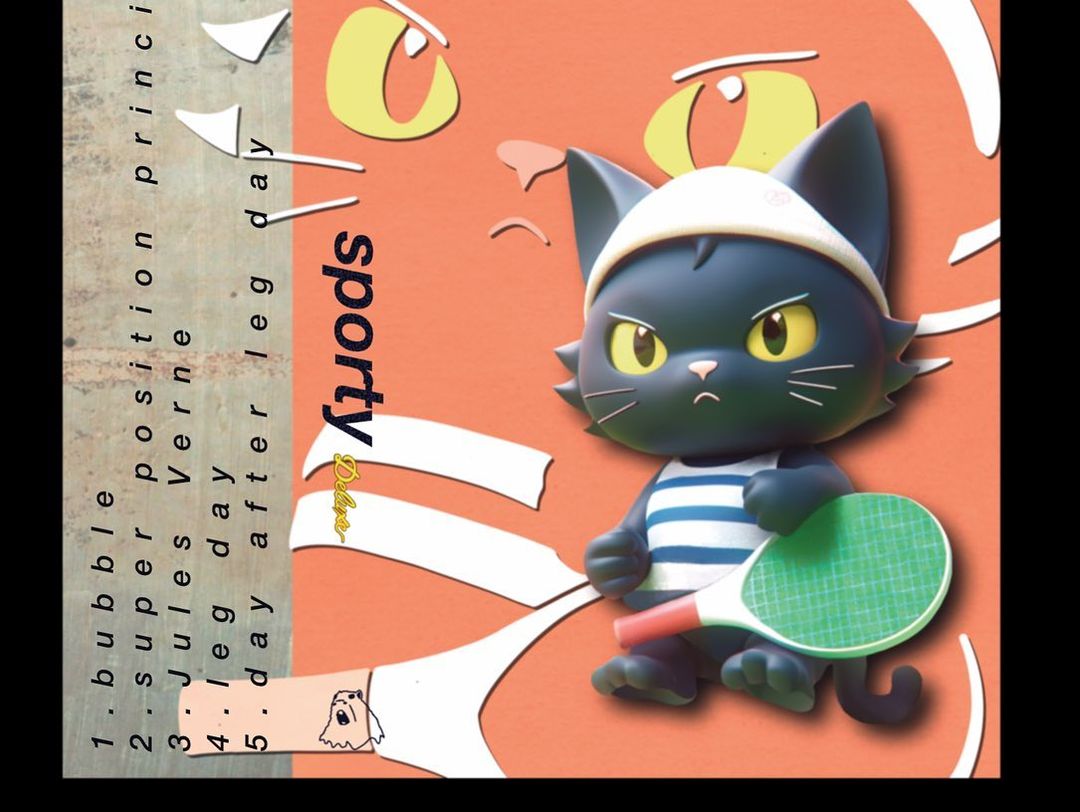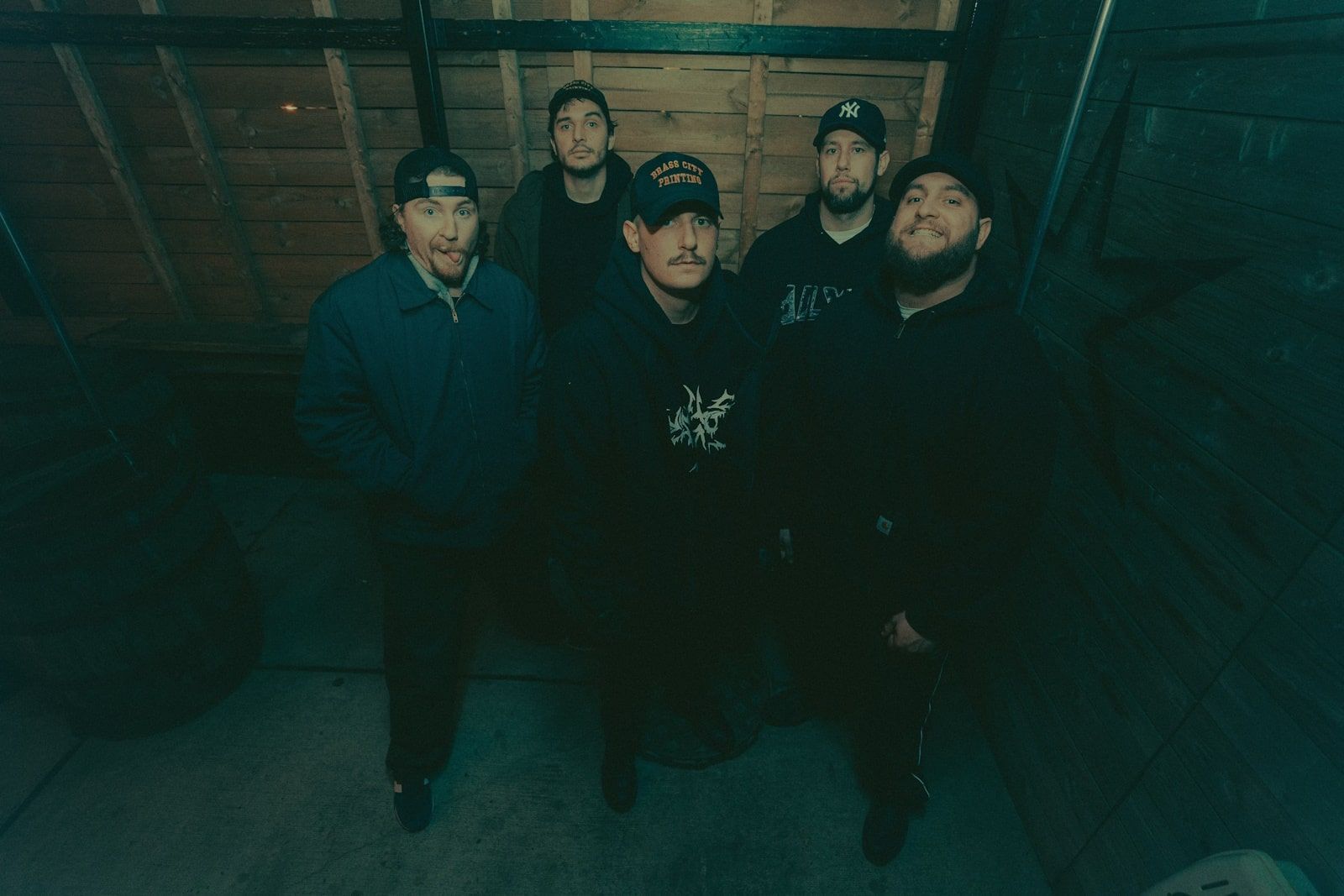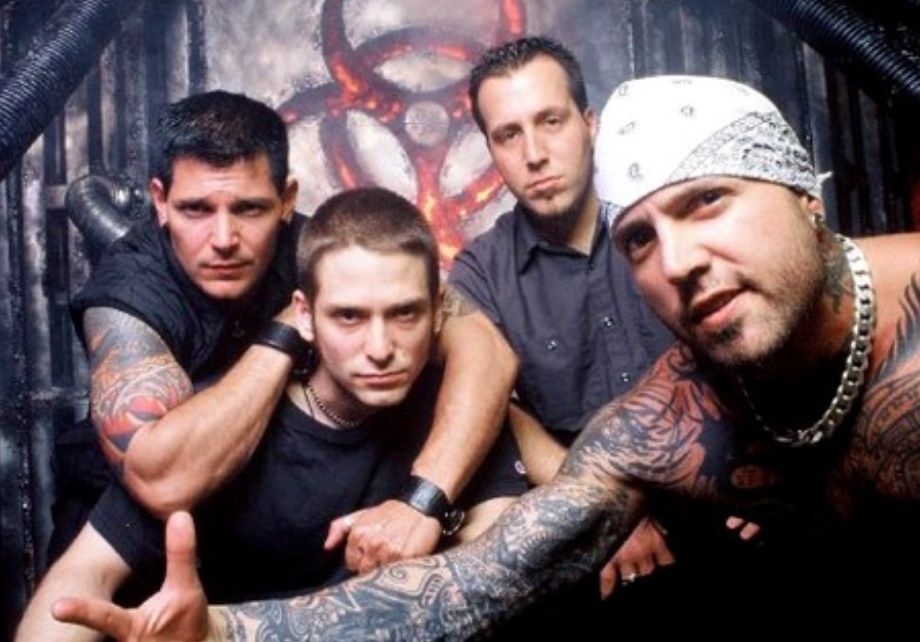The landscape of alternative art is an ever-shifting ground, but every so often, a band comes along that doesn’t just tread on this evolving terrain — they reshape it. Enter Son of Deni, a Warsaw-based trio with roots in the hauntingly beautiful landscapes of Belarus, a group that somehow condenses the vast, sprawling sprawl of human emotion into mathematically precise yet erratically expressive compositions. Their music could best be described as a fusion of “jazzy mathy screamo,” a genre-blending stew that appeals to an array of listeners, from emo purists to math-rock aficionados.
Denis, the band’s vocalist and guitarist, has gone beyond using his voice and strings to channel his inspirations. His very skin is a living canvas, etched with a lyrical lexicon that includes quotes, album covers, and odes to bands like Mineral, Algae Bloom, and Sunny Day Real Estate, among others. It’s a constellation of cultural signifiers, much like the music of Son of Deni itself — a universe where varied influences from games to anime find their place in the melody.
Despite the harsh nature of their style, the band’s musical scope is impressively expansive. It’s informed not just by the western post-rock and screamo scenes but also shaped by elements that echo as far as old-school Eastern screamo. You hear this best in their May two-track release, ‘Sunday Supper,’ a project that dances fluidly between emo, twinkle, math, and screamo genres.
Their latest EP, released just this past Friday, takes this endeavor to a new level. Titled ‘Sporty,’ the five-track collection—comprising of ‘bubble,’ ‘super position principle,’ ‘Jules Verne,’ ‘leg day,’ and ‘day after leg day’—continues to cement the band’s place in the alternative music space.
The new songs embody their signature erratic guitar sounds and ever-changing moods, fluctuating from the aggressive to the dancey. It’s all cranked up by a guitarist who likes his amp loud, a bassist who appreciates his beer, and a drummer who, humorously enough, relishes counting in 15/16 time signatures.
The EP is another feather in their cap, a continuation of their evolution that eludes easy categorization but fits snugly into the No Funeral Records catalogue.
While bands often get pigeonholed into neatly defined subgenres, Son of Deni defies easy classification. Their crafts unveils a unique intersection where emo meets screamo, math rock intermingles with indie, and all of it is peppered with somber grooves and heavier screaming vocals. It’s a blend that broadens the band’s appeal, drawing in fans who appreciate the complexities of a Fugazi, the ingenuity of a Q and Not U, or the experimental spirit of The Rabbit Theory.
With tracks that navigate from melancholic emo-waltz to punk, from aggressive vocals laid over jazzy chords to meticulous polyphony, the EP encapsulates a range of moods and styles without feeling disjointed.
To celebrate the recent release of the EP, we asked Denis (vocals/guitar) and Roman (bass) to give us their track by track commentary, revealing more details behind each and every track. Check it out below.
1. Bubble
Denis: The first version of the track appeared back in 2020, with the main idea being a long repetitive intro gradually building up dynamics. That version was classic screamo, with lyrics four times as long. By the time we were reworking the track as a band, I completely rewrote it. I wanted fewer lyrics to make them feel more significant. Structurally, the track is divided into three parts: tension in a post-rock style, a school disco (during drum recording, we deliberately played them very softly), and a major dance section. A maximal representation of what the release is fundamentally composed of.
Roman: Is it possible to create a melancholic emo-waltz transitioning into dance-punk? Yes, it is!
2. Super Position Principle
Denis: It all started with a groovy bass riff, onto which this entire groove with accents was added. Due to our limited instruments, there’s room for it carrying its own musical line. Various rhythms, a lot of movement. The vocals sound over aggressive jazz chords. Apart from the Japanese, no one else does it 🙂 The lyrics were written after our move in ’22, attempting to reflect on what’s happening and my specific position in it all.
Roman: In this track, we managed to cleverly blend groove, sparse and somewhat serene sections with intense explosions of all instruments, without turning it into a collection of good riffs. Instead, we crafted a diverse yet logical and beautiful musical canvas.
3. Jules Verne
Denis: The main riff that the track starts with (also heard during the vocals) was written when I was 19. The lyrics were written around the same time. This is the second version of the track; I released the first version when I was a rapper with spoken word and used this riff as a sample. Now, we’ve turned it into mathematics with repetitiveness and a melodic line that should firmly stick in your head. Throughout the album, there’s not much overdrive on the guitar; you can clearly hear how the instruments build the groove and tension. Lots of playing around with the pedals. We intentionally used a bitcrusher on the guitar used with vocals to make it more similar to a sample.
Roman: We’ve been wanting to try something in the post-rock style for a while, and this idea fit organically with the track’s revamp. Apart from being a rework, the new studio and live versions are different. So, come to the live show; otherwise, you won’t get to hear the alternative version, hehe.
4. Leg Day
Denis: The track’s intro, with this almost classical harmony, I picked up from Chon. Here’s another strange delay and a bunch of glitches throughout the track. All these things were done through my pedals. For each song, I found new variations of delays/reverbs. The track itself is built on four chords, and it’s the most “understandable” screamo track. But it couldn’t be that simple, so in the second part, we decided to add a bossa nova 🙂 The lyrics are about emigration, losing old friends, and not being able to find new ones.
Roman: I don’t know, maybe I’m crazy, but I feel Radiohead vibes in this track, and I love Radiohead, which is why I love this track! The bridge in this track was a challenge for us as a band, as due to the tempo, it requires good coordination from us.
5. Day After Leg Day
Denis: “Day After” is a more major track than the rest of the release. It leans more towards math rock and the direction the group will move in terms of material and sound. In my opinion, it’s the strongest track on the album. In the second part, it was the only time we used harsh distortion on the guitar. I wanted to achieve the feel of the sound that the band Mineral has. I was carrying the idea of mixing clean and distorted vocals in such polyphony (similar to ‚everything is in your hands’ by Old Gray). The lyrics are about exhaustion and the desire to simply take a rest.
Roman: The sparse and major beginning in this track is deceptive because it’s actually in this track that the most expressive and explosive vocal part of the release occurs!



